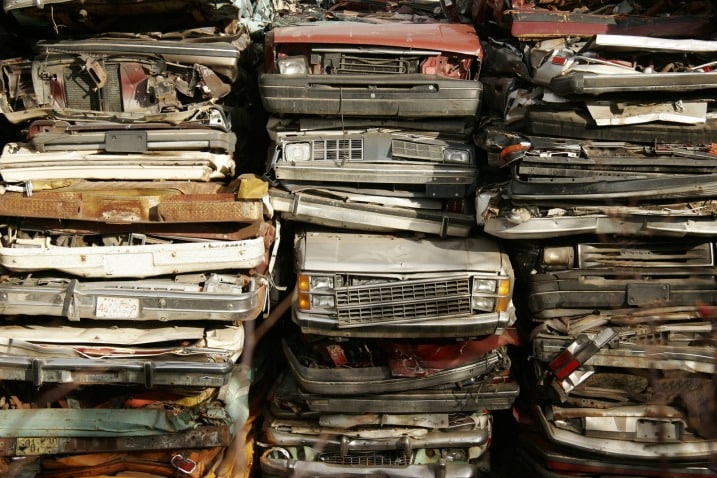If you want your car donation to benefit a charity and its cause, be careful to whom you donate. In some cases, most of the proceeds from these gifts may go to a for-profit telemarketer working for the charity, rather than the charity itself.
How To Research Your Car Donation
You Might Be Surprised by Who Benefits the Most
Most donated cars are sold for parts or scrap, and don't net much money. Further, some charities use for-profit fundraisers, which can charge half of what the charity gets (or more) for their services.
Auto Donation Dollars Hit a Fork in the Road
"About one-third of the charities we follow use telemarketing companies," says Sandra Miniutti, vice president of marketing and chief financial officer for the nonprofit monitoring organization Charity Navigator. According to Miniutti, these for-profit companies take an average of 60 percent of funds raised through phone campaigns.
Sometimes they take everything. In a telemarketing campaign, there may be a dollar target set by the charity, and if it isn't reached, "the for-profit takes it all," Miniutti says. "Some charities actually lose money."
Charities that take car donations instead of money may get 50 percent of the value of all contributed vehicles, according to Daniel Borochoff, president of the nonprofit watchdog CharityWatch. That's still not much. After all, when you donate a car with a charity's benefit in mind, you probably don't want half the proceeds to go to a for-profit business.
See Edmunds pricing data
Has Your Car's Value Changed?
Used car values are constantly changing. Edmunds lets you track your vehicle's value over time so you can decide when to sell or trade in.

The more heart-rending the cause, the more likely it is that the charity uses a telemarketing company. "Everyone is sympathetic to those causes," Borochoff says. "More controversial causes are much less likely to use for-profits, because the companies can't make much money from them." For the same reason, telemarketing and other fundraising companies work primarily with large nonprofits.
To find out if a charity uses a telemarketing company, check CharityWatch (membership required to view ratings) and Charity Navigator. Each has its own approach to researching and reporting on nonprofits. Also, Charity Navigator does not rate charities that have less than $1 million in revenues, and some charities that specialize in car donations fall into that category.
Cut Through the Telemarketing Spiel
If you find yourself on the phone talking to a telemarketer who is trying to convince you to donate a car to charity, you can perform some due diligence in real time. "Ask who's doing the asking," says Borochoff, "and if it's a company, ask what percentage goes to the charity and how much cash is going to 'program services.'"
You might think "program services" means something such as medical care, research into a disease or special equipment for an injured veteran or a child with leukemia. But these "services" may be nothing more than "educating the public that injured veterans have needs — not actually meeting those needs," Borochoff says. "Home in on what they're actually doing." If they say research, Borochoff says, check to make sure that it's medical research, and not marketing research.
Perhaps the simplest, easiest response to a phone solicitor "is to just hang up," says Miniutti. There is no reason to agree to a telephone solicitation to donate a car.
When the Telemarketer Relationship Works
Nonprofit Southern California Public Radio regularly grosses 80 percent from the proceeds of its vehicle donations, totaling $1 million annually.
"A reasonable return on car donations is 60 percent to 80 percent," says Rob Risko, director of membership for Southern California Public Radio. To get those numbers, the organization heavily researches potential for-profit partners and engages them in small one-month trial campaigns. If Southern California Public Radio hires the company, it monitors the contractor's activities daily. For example, Risko and other staff are in the "to-call" lists, so "we can hear how they sound and work," he says. If the for-profit's costs rise above 25-28 cents for each dollar raised, "we call vendors to find out why," he says.
As Southern California Public Radio shows, charities can benefit from using telemarketing and other fundraising companies. Nevertheless, if you are solicited for a car donation by phone, mail or advertising, make sure you know who's asking and where the money really goes.

 by
by 


